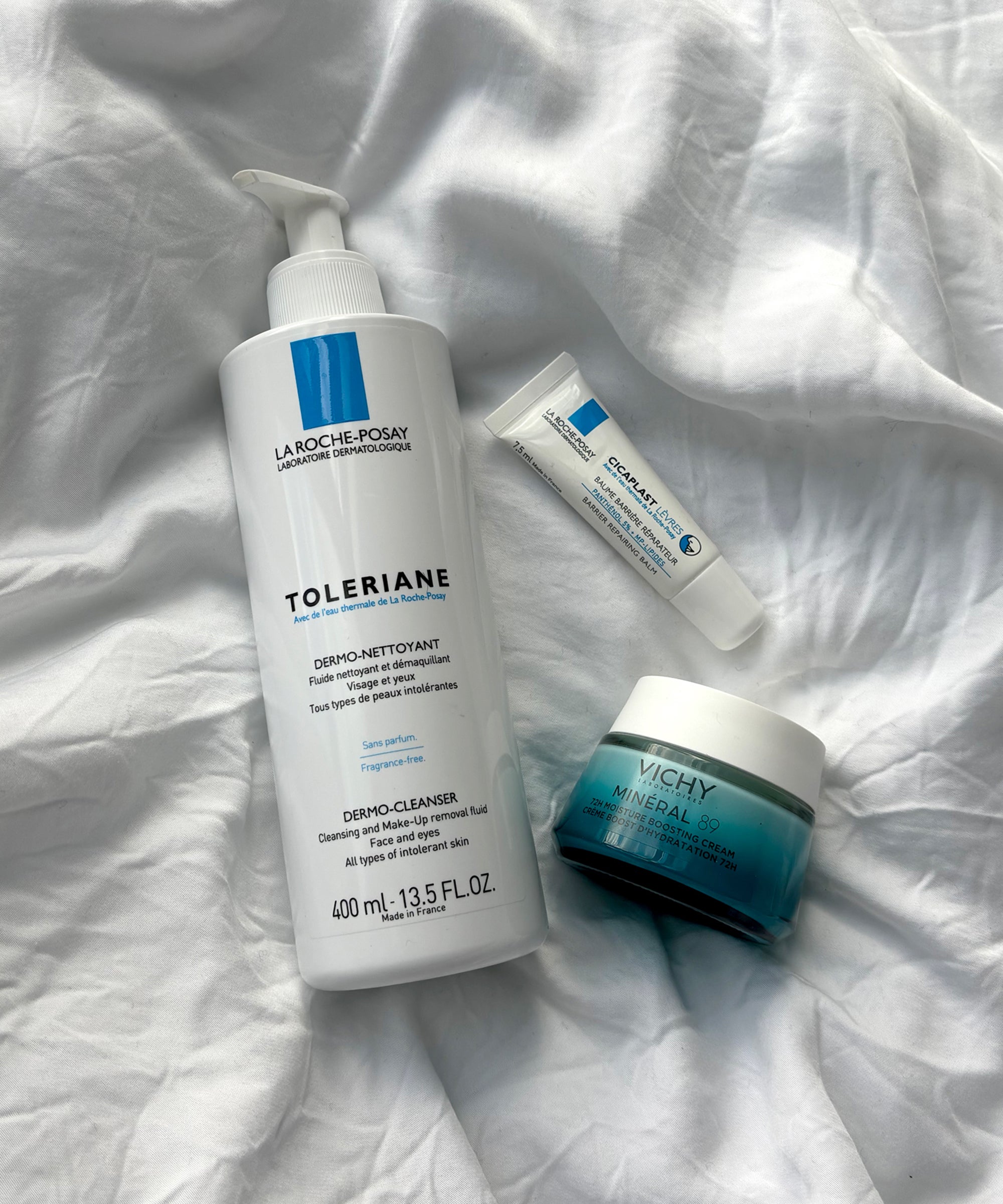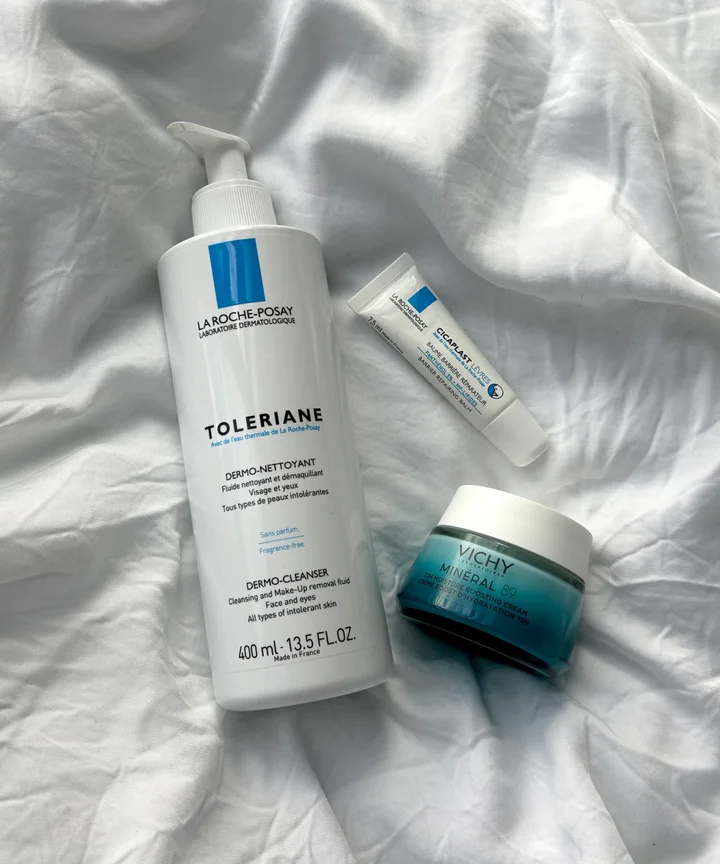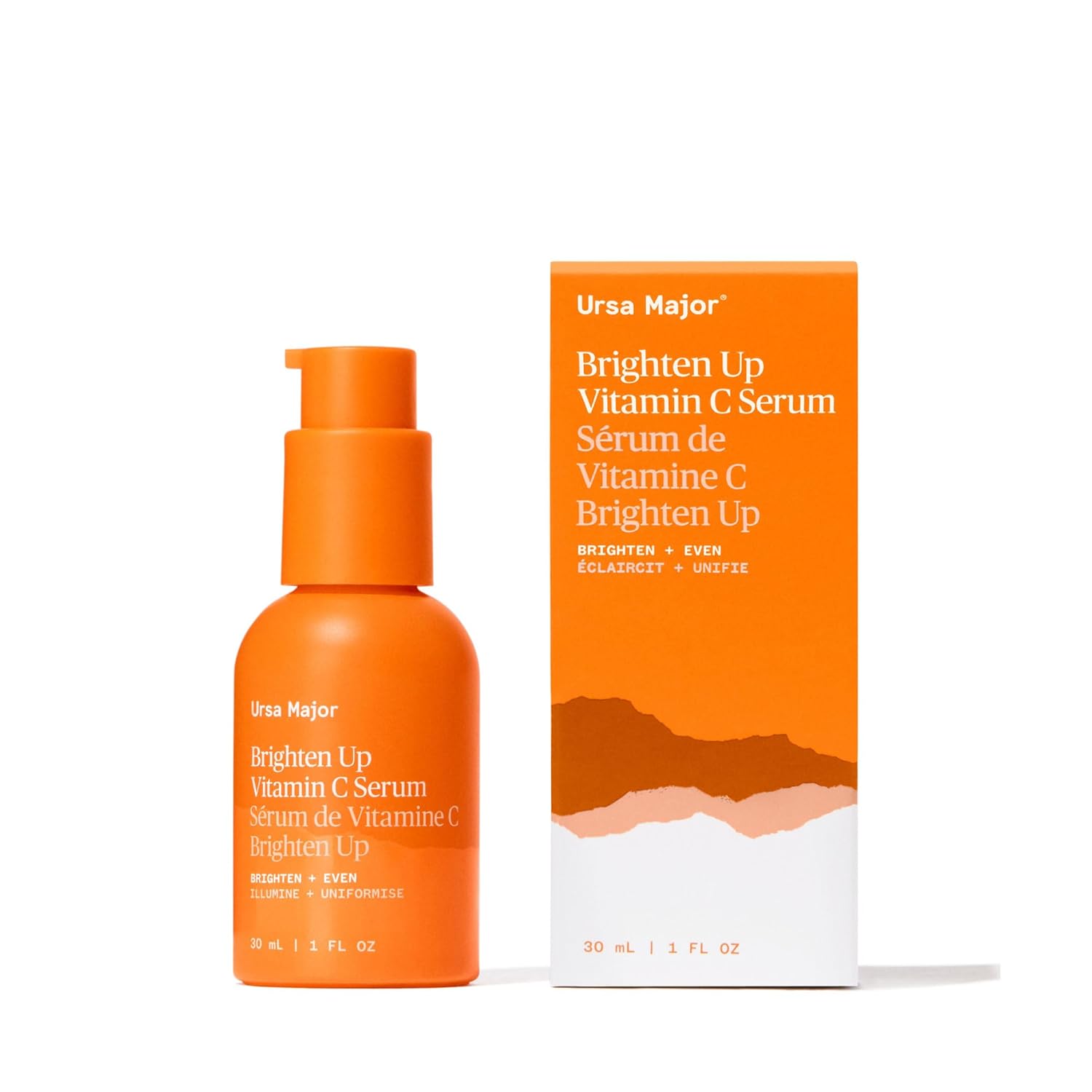Best Skin Care for Dry Skin: Imagine waking up every morning with skin that feels as soft and supple as a gentle breeze. If you struggle with dry skin, you know how elusive that dream can feel.
Every flake and tight patch can be a constant reminder that your skin needs extra care and attention. But here’s the good news: finding the best skincare routine for dry skin doesn’t have to be a daunting task. You deserve skin that feels comfortable and looks radiant.
Picture yourself confidently wearing your favorite outfit, knowing your skin is glowing from within. This article is here to guide you through the maze of skincare products and routines, helping you discover what truly works for your unique skin needs. From hydrating cleansers to nourishing creams, we’ve got you covered with tips and recommendations that will transform your skincare game. Unlock the secrets to achieving the soft, hydrated skin you’ve always wanted. Dive in, and let’s uncover the best skincare solutions tailored just for you. Your journey to healthier skin starts here—are you ready to explore the possibilities?

Credit: www.refinery29.com
Understanding Dry Skin
Dry skin needs gentle care to stay soft and healthy. Choose moisturizing creams with hyaluronic acid for hydration. Protect with sunscreen to avoid further dryness.Understanding dry skin is essential for choosing the right skincare routine. Dry skin can feel tight, rough, and even itchy, making it uncomfortable and challenging to manage. But with the right knowledge, you can transform your skin into a soft and hydrated canvas.
Causes Of Dry Skin
Several factors can lead to dry skin. Environmental elements like cold weather and low humidity can strip moisture away from your skin. Excessive use of hot water during showers can also contribute, as it removes natural oils that keep your skin hydrated. Certain soaps and skincare products can be harsh and drying. If you’ve ever noticed your skin feeling tight after washing, it might be time to switch products. Aging can also play a role, as skin produces less oil over time.
Symptoms To Watch For
Recognizing the symptoms of dry skin is the first step in addressing it. Common signs include a feeling of tightness, especially after showering or swimming. You might also notice flaky or peeling skin, which can be particularly visible around your nose and forehead. Itching is another common symptom that can often lead to irritation if scratched. In severe cases, you might see cracks or lines on your skin, which can even bleed if not treated. If you’ve ever experienced these symptoms, consider evaluating your skincare routine for possible triggers. Have you ever wondered if your skin is truly dry or just dehydrated? Observing these symptoms closely can help you make that distinction. Addressing dry skin effectively often requires patience and a bit of experimentation with different products and routines.
Hydration Essentials
Dry skin can be a constant challenge, leaving you feeling tight and uncomfortable. That’s why hydration is key to restoring that soft, supple feel. Understanding the essentials of keeping your skin hydrated will transform your skincare routine and bring back your natural glow.
Importance Of Moisturizing
Moisturizing isn’t just an extra step; it’s a necessity for dry skin. It helps lock in moisture, preventing your skin from feeling flaky and rough. Skipping moisturizer can lead to more pronounced fine lines and irritation.
I once thought my oily moisturizer was enough, but my skin begged to differ. Switching to a richer formula made all the difference. Have you ever underestimated the power of the right moisturizer?
Choosing The Right Products
Not all moisturizers are created equal. Look for products with hydrating ingredients like hyaluronic acid and glycerin. They attract water to your skin, providing long-lasting moisture.
Ceramides and natural oils, like jojoba or almond, can also be game-changers. They strengthen your skin’s barrier, keeping moisture in and irritants out. Ever noticed how your skin feels after a day in the sun? Those ingredients can help repair that damage.
Consider trying a product sample before committing. Your skin will tell you what it loves, so listen closely. Have you found your perfect hydrating match yet?
Effective Ingredients
Finding the best skincare for dry skin can feel like searching for a needle in a haystack. But knowing the right ingredients can make all the difference. These ingredients are the backbone of your skincare routine, ensuring your skin remains hydrated and healthy. Let’s explore some of the most effective ones.
Hyaluronic Acid Benefits
Hyaluronic acid is a powerhouse ingredient for dry skin. It can hold up to 1,000 times its weight in water. This means it draws moisture into your skin, giving you that plump, hydrated look.
Have you ever noticed your skin looking dull after a long day? A quick application of hyaluronic acid can refresh and rejuvenate. Consider using a serum or moisturizer containing this magical ingredient.
Glycerin For Moisture
Glycerin is another star player in skincare for dry skin. It acts like a sponge, pulling moisture from the air into your skin. This keeps your skin soft and supple throughout the day.
Try applying a glycerin-based cream before bed. You might wake up with noticeably smoother skin. The difference can be surprisingly visible.
Ceramides In Skin Care
Ceramides are crucial for maintaining your skin’s barrier. They help lock in moisture and protect against environmental damage. Think of them as the glue that holds your skin cells together.
If your skin often feels tight or flaky, it might be lacking ceramides. Look for creams or lotions with ceramides as a key ingredient. They can offer long-lasting hydration and protection.
Have you tried any of these ingredients yet? The right combination can make your skin care routine truly effective. Share your experiences and thoughts below. What works best for you might help someone else too!

Credit: www.refinery29.com
Daily Skin Care Routine
Gentle cleansing and rich moisturizing are essential for dry skin care. Hydration helps maintain softness and prevents flakes. Sun protection keeps skin healthy all day.A daily skin care routine is essential for maintaining healthy, hydrated skin, especially if you struggle with dryness. Establishing a consistent routine can make a significant difference in how your skin looks and feels. Let’s delve into practical tips you can use every morning and night to keep your skin feeling soft and supple.
Morning Routine Tips
Start your day by cleansing your face with a gentle, hydrating cleanser. Look for products with ingredients like glycerin or hyaluronic acid to help retain moisture. Remember, a gentle touch is key to avoiding irritation. After cleansing, apply a hydrating toner. This step helps balance your skin’s pH and prepares it to absorb the next products effectively. Choose toners with soothing elements like chamomile or aloe vera. Next, use a serum packed with antioxidants to protect your skin from environmental stressors. Ingredients like vitamin C can brighten your complexion and provide a shield against pollution. Apply a few drops and gently press it into your skin. Don’t skip the moisturizer. Opt for a rich, creamy moisturizer that promises long-lasting hydration. Look for ceramides or shea butter in the ingredients list. Finally, always apply sunscreen with at least SPF 30, even if it’s cloudy. This step is crucial for protecting your skin from harmful UV rays and preventing premature aging.
Nighttime Rituals
Your nighttime routine should begin with removing all makeup and impurities. Use a gentle, oil-based cleanser to break down makeup and grime without stripping your skin’s natural oils. Follow with a hydrating cleanser to ensure your skin is thoroughly clean. This double cleansing method ensures you go to bed with a fresh face. Apply a nourishing serum, focusing on ingredients like peptides or hyaluronic acid. These components help repair and rejuvenate your skin while you sleep, leaving it plump in the morning. Use a heavier night cream or a sleeping mask to lock in moisture overnight. These products often contain richer ingredients that provide intensive hydration. Consider adding a few drops of facial oil if your skin feels particularly dry. Oils like argan or rosehip can offer an extra layer of nourishment. As you establish these routines, think about how your skin responds and adjust your products accordingly. Have you found a specific ingredient that works wonders for your dryness? Share your thoughts and connect with others who might benefit from your insights.
Lifestyle Habits For Hydration
Dry skin needs more than just creams. Lifestyle habits play a key role. Simple changes can help maintain skin moisture. Begin with your daily choices. These affect skin health significantly.
Diet And Nutrition
What you eat impacts your skin. Foods rich in omega-3s boost hydration. Include fish like salmon and mackerel in your meals. Nuts and seeds are also beneficial. They provide essential fatty acids.
Fruits and vegetables are great. They offer vitamins and minerals. Choose those with high water content. Cucumbers and watermelons, for example. They help keep your skin soft and supple.
Hydration From Within
Drink plenty of water each day. Water helps flush out toxins. It keeps your skin hydrated from inside. Aim for at least eight glasses daily. Herbal teas and coconut water are good options too.
Limit caffeine and alcohol. They can dehydrate the skin. Opt for beverages that enhance hydration. Choose wisely to maintain skin health. Your skin reflects what you consume.

Credit: hatonthemap.com
Common Mistakes To Avoid
Dealing with dry skin can be a frustrating challenge. You try different creams, oils, and serums, but sometimes it feels like nothing works. What’s often overlooked are the common mistakes that might be sabotaging your skincare routine. Addressing these can make a significant difference in achieving healthier, hydrated skin. Let’s dive into the common pitfalls you should avoid.
Over-exfoliating
Exfoliating might seem like the magic trick to smooth skin, but doing it too often can lead to irritation. You may feel the urge to scrub away those flaky patches, thinking it will reveal a softer layer underneath. However, excessive exfoliation can strip your skin of its natural oils, leaving it even drier.
Instead, limit exfoliation to once or twice a week. Choose gentle exfoliants suited for dry skin. Think about how refreshing it feels to have smooth skin without the tightness or redness. Balance is key here. How does your skin feel after exfoliation? If it’s screaming for moisture, you might be overdoing it.
Ignoring Sun Protection
Did you know that sun exposure can make dry skin worse? Even on cloudy days, UV rays can damage your skin, leading to dryness and premature aging. You may skip sunscreen because you’re indoors or because you think your moisturizer is enough. This mistake can leave your skin vulnerable.
Make sun protection a daily habit. Apply a broad-spectrum sunscreen with at least SPF 30 every morning. Consider it a vital step in your skincare routine, not just an option. Think about how you’ll feel years from now, looking in the mirror and appreciating your healthy skin. Are you taking this easy step to protect your skin today?
Remember, small changes can make a big impact. Avoid these common mistakes to nurture your dry skin effectively. Your skin will thank you!
Diy Remedies
Dry skin can be a persistent issue, but you don’t always need expensive products to keep it hydrated and smooth. DIY remedies offer a natural approach, providing your skin with the nourishment it craves without breaking the bank. These homemade treatments can be as effective as store-bought options, and they’re often more fun to make.
Natural Oils And Butters
Have you ever tried using oils and butters straight from your kitchen? These ingredients are not just for cooking; they can work wonders for dry skin. Coconut oil is a favorite for its deep moisturizing properties. It penetrates the skin easily, leaving it soft and supple.
Another great option is shea butter. It’s known for its rich texture and ability to lock in moisture. A small amount goes a long way, and it feels luxurious on the skin. Why not explore your pantry and see what you can find?
Olive oil is another gem. It’s filled with antioxidants and vitamins that your skin loves. Use it as an overnight treatment to wake up with refreshed skin. Have you tried any of these oils yet?
Homemade Masks And Scrubs
Creating masks and scrubs at home can be a simple yet effective way to revive dry skin. Start with a honey and yogurt mask. Honey is a natural humectant, meaning it draws moisture into the skin. Combined with yogurt, it exfoliates gently while soothing irritation.
Oatmeal scrubs are another fantastic choice. They are gentle yet effective at removing dead skin cells. Mix oatmeal with a bit of milk to create a paste. Apply it to your skin and enjoy the calming effect.
What about avocado masks? Avocado is rich in healthy fats and vitamins. Mash one up and apply it directly to your skin for a nourishing treat. Have you tried making any masks or scrubs at home? Let us know your favorite recipe!
Expert Tips And Advice
When your skin feels like the Sahara desert, finding the right care routine can be daunting. But worry not, as expert tips and advice can guide you to achieve that coveted soft, hydrated skin. Your journey to flawless skin starts with understanding what professionals recommend and how you can adjust your routine to the changing seasons.
Dermatologist Recommendations
Dermatologists are your go-to for personalized skincare advice. They often suggest using gentle cleansers that don’t strip your skin’s natural oils. Consider products with hyaluronic acid or glycerin, as they can lock in moisture effectively.
Ever tried skipping a moisturizer thinking it wouldn’t make a difference? Think again! Dermatologists emphasize the importance of moisturizing even in humid conditions. It’s not just about hydration but also about protecting your skin barrier.
A dermatologist once advised me to use a humidifier during winter. What a game-changer! It keeps the air moist, preventing your skin from drying out overnight. Have you tried this simple trick?
Adapting To Seasonal Changes
Seasonal changes can wreak havoc on your skin. Summer heat may call for lighter lotions, while winter might demand a thicker cream. Observing the weather and adjusting your skincare routine can save your skin from unnecessary stress.
During colder months, you might notice your skin becoming flaky. Consider adding an oil-based serum to your routine. They provide an extra layer of moisture that might be just what your skin needs.
Spring and fall bring their own challenges. As temperatures fluctuate, your skin might react unpredictably. Keeping track of these changes and tweaking your routine accordingly can keep your skin looking its best. Have you noticed how your skin responds to these seasonal shifts?
Remember, skincare is not one-size-fits-all. What works for someone else may not work for you. The key is to listen to your skin and make adjustments as needed. What changes will you make to keep your dry skin glowing all year round?
Frequently Asked Questions
What Causes Dry Skin On The Face?
Dry skin can result from various factors, including cold weather, low humidity, harsh skincare products, and aging. These elements strip the skin of its natural oils, leading to dryness and irritation. Maintaining a consistent skincare routine can help combat these issues and restore moisture to your skin.
How Can I Hydrate Dry Skin Effectively?
Hydrating dry skin involves using products like hyaluronic acid, glycerin, and ceramides. These ingredients attract moisture and strengthen the skin’s barrier. Regularly applying a rich moisturizer and drinking plenty of water ensures your skin stays hydrated and healthy, reducing dryness and flakiness.
Are Natural Remedies Good For Dry Skin?
Natural remedies can be beneficial for dry skin. Ingredients like aloe vera, coconut oil, and honey have moisturizing properties. They help soothe and hydrate the skin naturally. However, it’s important to test these remedies first to ensure they don’t irritate your skin or cause allergies.
What Should I Avoid For Dry Skin?
Avoid products containing alcohol, fragrances, or sulfates, as they can dry out the skin further. Opt for gentle, fragrance-free cleansers and moisturizers. Limiting long, hot showers and using lukewarm water can also help prevent stripping your skin of its natural oils.
Conclusion
Caring for dry skin requires the right routine. Start with gentle cleansers. They help remove dirt without stripping moisture. Moisturizers are crucial. Choose products with hyaluronic acid or glycerin. These keep your skin hydrated. Drink plenty of water, too. Hydration starts from within.
Protect your skin with sunscreen. Even on cloudy days. A healthy diet also supports skin health. Fruits and vegetables are beneficial. Consistent care makes a difference. Your skin will thank you. Remember, small changes lead to big results. Prioritize what feels good on your skin.
Enjoy the journey to healthier, softer skin.



